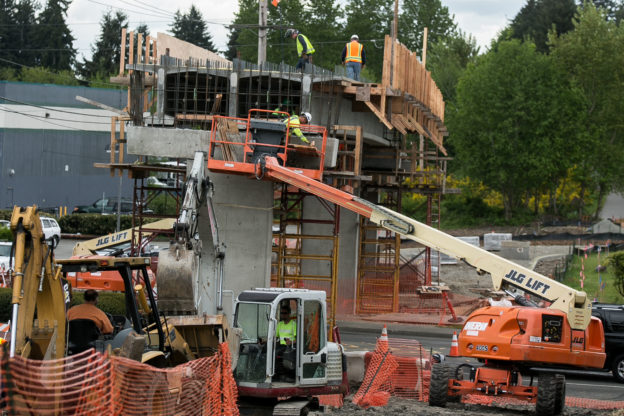State Sen. Phil Fortunato, R-Auburn, says voter approval of Initiative 976 has cleared a path for his legislation to meet the state’s transportation-infrastructure needs without new taxes. I-976, which has so far received a 56-percent “yes” vote in the general election that concluded yesterday, will return annual licensing fees to $30 for most vehicles; it also corrects the flawed Sound Transit car evaluation schedule that has landed the regional transit authority in court.
“Since joining the Senate I have been sounding the alarm on the impending transportation funding crisis,” said Fortunato who serves on the Senate Transportation Committee. “That had nothing to do with this initiative, but was driven by an honest look at declining revenues versus the immense need for infrastructure resources. Now that voters have spoken, the state still needs these valuable projects, and my proposal will fund them and more with the money they already send to Olympia.”
Senate Bill 5743 would fundamentally change how the state pays for transportation projects by using the existing sales tax on motor vehicles. The bill received a public hearing during the 2019 legislative session and is the only no-new-tax proposal before the Legislature that can fill the funding gap created by the passage of I-976.
Presentations to the Senate Transportation Committee by state officials indicated that declining gas-tax revenues and inflationary costs already outpace the state’s resources. To date, ideas such as a mileage tax, also known as a Road Usage Charge, are being considered in the Legislature.
“The problem with transportation funding is not usage, but all the solutions are based on that premise,” said Fortunato. “The main cost driver is inflation. The existing sales tax on motor vehicles represents an inflation-linked funding source that non-partisan analysis shows will give the state more money for roads than the other schemes being discussed — and it gives taxpayers a well-deserved break.
“When my bill received a public hearing, the chair of the committee said that my approach was ‘probably right but would never make it out of the Ways and Means Committee’. I think that taxpayers have clearly sent a message that we need to get creative and find solutions that don’t require an endless list of taxes to fix the roads they already pay for. The timing is right to fully fund transportation.”
An economic analysis of Fortunato’s proposal can be found here: Transportation Funding









